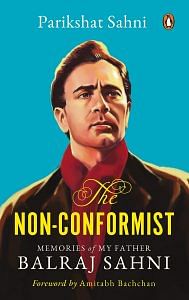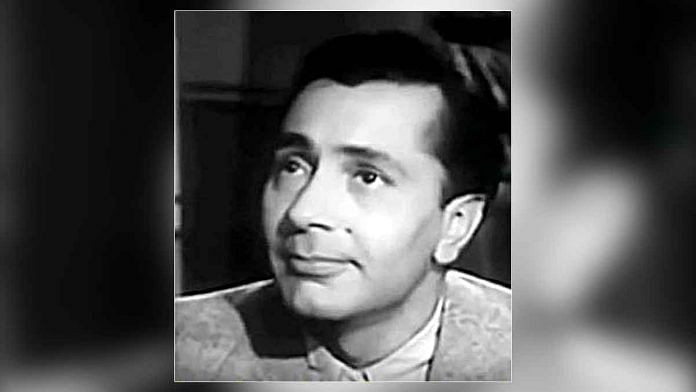I remember the days I spent with Dad in Gulmarg with a nostalgic ache, in particular the long walks and climb to Khilan. The serenity of the hills, the mesmerizing vistas, the heavenly meadows and the meandering streams, they all gave us an overwhelming sense of peace and harmony, with each other and with nature. It was truly a deeply spiritual experience, which I have never been able to replicate anywhere or with anyone other than Dad.
Being an avid photographer, Dad carried his camera with him wherever he went and photographed any and everything that caught his eye—the deep coniferous forests, the wild flowers growing in the glades, the streams flowing down the mountainsides. And he discussed every topic that came to his mind with me. One day, we came across an unpleasant sight while on our evening walk.
Two pony owners, for some unknown reason, were fighting, lashing out at one another with their whips. I was unnerved at this sight. It looked like these two were hell bent on killing one another. Their faces and arms were lacerated and were bleeding profusely. There was no one around; Dad walked up to them and tried to pacify them, but they paid no heed to him. He implored them to stop and listen to him, but they were in a towering rage and kept whipping one another mercilessly.
Also read: Balraj Sahni, the common man’s hero who told their story through cinema
In their frenzy, one whiplash accidentally landed on Dad and tore his shirt sleeve, leaving an ugly mark on his forearm. Finding that the two were implacable, Dad backed off. He looked very sad as he stared at them for a while, oblivious of his own pain. ‘Come,’ Dad said to me and we walked off. He was quiet for a while, paying little attention to the whiplash he had received on his forearm. He was pensive and sounded dismal when he finally spoke, ‘I am sure the cause of this fight must be quite trivial. This is what poverty does to people. The sad part is that they are ignorant of the root cause of their troubles—exploitation! They have not yet guessed the reason for their poverty and understood who is responsible for it. That is capitalism for you! The poverty-stricken working classes in India are blissfully unaware of the reason why they are starving. The Hindus blame it on karma and their actions in their past lives. These poor fellows are illiterate and have never given a thought to who is exploiting them. They are not aware that just across those mountains lies the Soviet Union, where poverty and exploitation have ceased to exist; where there is equality and justice. When will there be a revolution in India?’
Also read: Kabuliwala is the heart-rending childhood tale of innocence, love & fate
Whatever happened, sooner or later Dad would return to the philosophy of Marx and Engels and the example of the Soviet Union. That was his answer to every social ill. He walked on, cogitating on what he had seen for a while, but his dark mood soon lifted as he pronounced the final conclusion, ‘There will be a revolution in India one day for sure. It is the law of dialectics!’ I don’t think Dad’s love of the working class and the poorer sections of society was only because of the Marxist philosophy. I think his empathy was the natural outcome of his innate compassion and ‘love of mankind’ as he called it.
Whenever Dad went to Gulmarg, the poor and bedraggled ponyowners (the pony being the main mode of transport in Gulmarg) flocked to meet him. He knew each of them by name. He listened to their problems and distributed money among them. He did the same with the shikara-walas on the Dal Lake. And they in turn considered him their own.
The last time I was in Srinagar and walked down the Boulevard, the boatmen recognized me and spoke about Dad, ‘Wo to hamaare apne the!’ (He was our very own!) They knew him well and remembered him fondly. For Dad, Srinagar mainly meant the Dal Lake and the Mughal Gardens that dotted the banks of the lake; this was where he headed whenever he was in Srinagar. Blessed with incredible stamina, he would swim from one end of the Dal Lake to the other, from Gagribal Point to the Shalimar Gardens, a distance of almost three miles, while a shikara always coasted alongside him.
Also read: Do Bigha Zamin, the Bimal Roy classic that Bollywood should look at now more than ever
As usual, he swam at a slow and graceful crawl, with his swimming trunks around his neck. I often swam with him, but I could never keep up with him. It took me hours to swim from one end of the lake to the other!
The shikara that followed Dad usually carried a picnic basket with a bottle of beer, some food and a thermos flask of hot tea. After the swim, he would offer the shikara-wala a cup of hot tea and some food from the picnic basket, paying him handsomely, and chat amicably with him. He did the same with the houseboat owners on the Jhelum and the Dal Lake. Such simple pleasures gave him unalloyed joy as no amount of wealth or fame ever could; he loved life as I have never seen anyone love it before or since. He lived in the ‘now’ and in the moment, enjoying every minute of his day.
Even after reaching the acme of success, Dad retained his love for the masses, with whom he mingled wherever and whenever he could. Looking back, those days are forever etched on my own soul as special times when I bonded with Dad more than I ever did at any other time or place. Kashmir, especially Gulmarg, remains forever associated with him. I truly believe that his soul dwells there and it is there that I feel most connected with him. The lakes, the mountains, the very air speak to me whenever I go there, which is seldom now, but even memories of the place are enough to evoke a sense of his presence around me.
 This excerpt from The Non-Conformist: Memories of My Father Balraj Sahni by Parikshat Sahni has been published with permission from Penguin Random House India.
This excerpt from The Non-Conformist: Memories of My Father Balraj Sahni by Parikshat Sahni has been published with permission from Penguin Random House India.




Mr Balraj Sahni was a very handsome truelly talented actor, an intellectual and a great human being. If he was in Hollywood, he would have been a great star. I have enjoyed his performance in Kabuliwala, garam hawa, do bigha zameen, Waqt among his numerous roles.
“Poverty and exploitation has ceased to exist and there’s equality in Soviet Union” lmao. Guess he never cared to read Solzhenitsyn. What a pathetically I’ll informed person he must’ve been.
India was largely a socialist economy for the first 40 years of Independence with the euphemism of a mixed economy to boot..how much social equality, equal distribution of income was brought about? Socialism has been shunned by the very places where it was born. Please let us stop romanticizing socialist ideas so much. Neither Capitalism or Socialism is a panacea to the ills that plague the society but goverment action backed by private participation along with accountability for all is the solution if we are to lift the masses out of poverty and have a more equitable distribution of income and resources, along with boosting the private sector participation in the economy.
Thanks respect for Kashmir and Kashmiris
Those who are having doubts on capitalism or would like to know basic economics can read basic economics by Thomas sowell